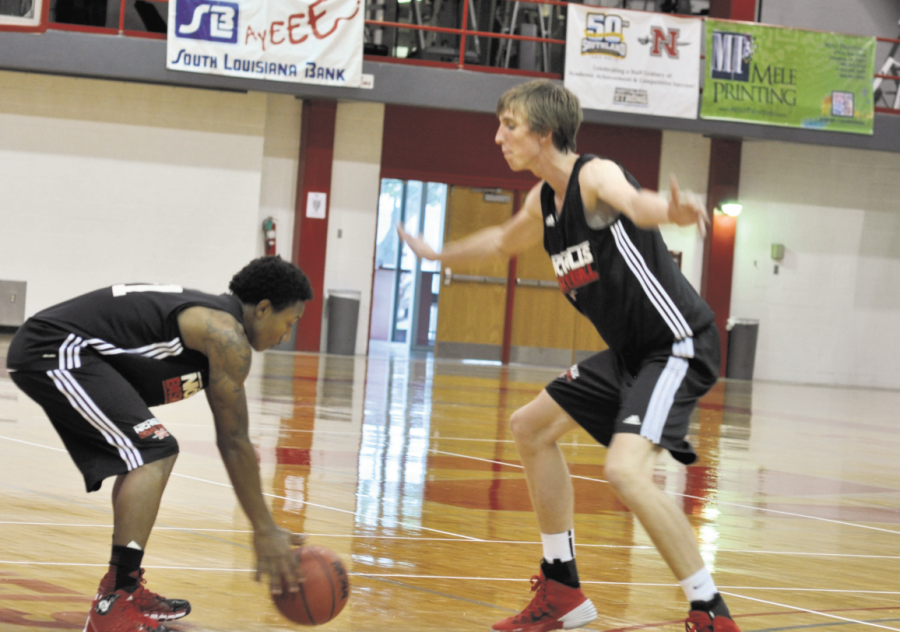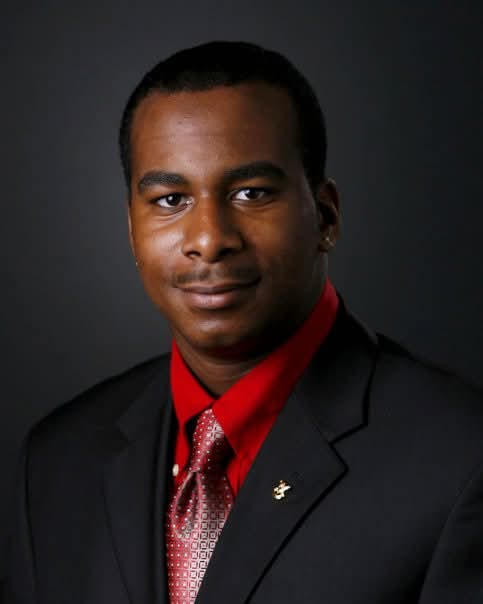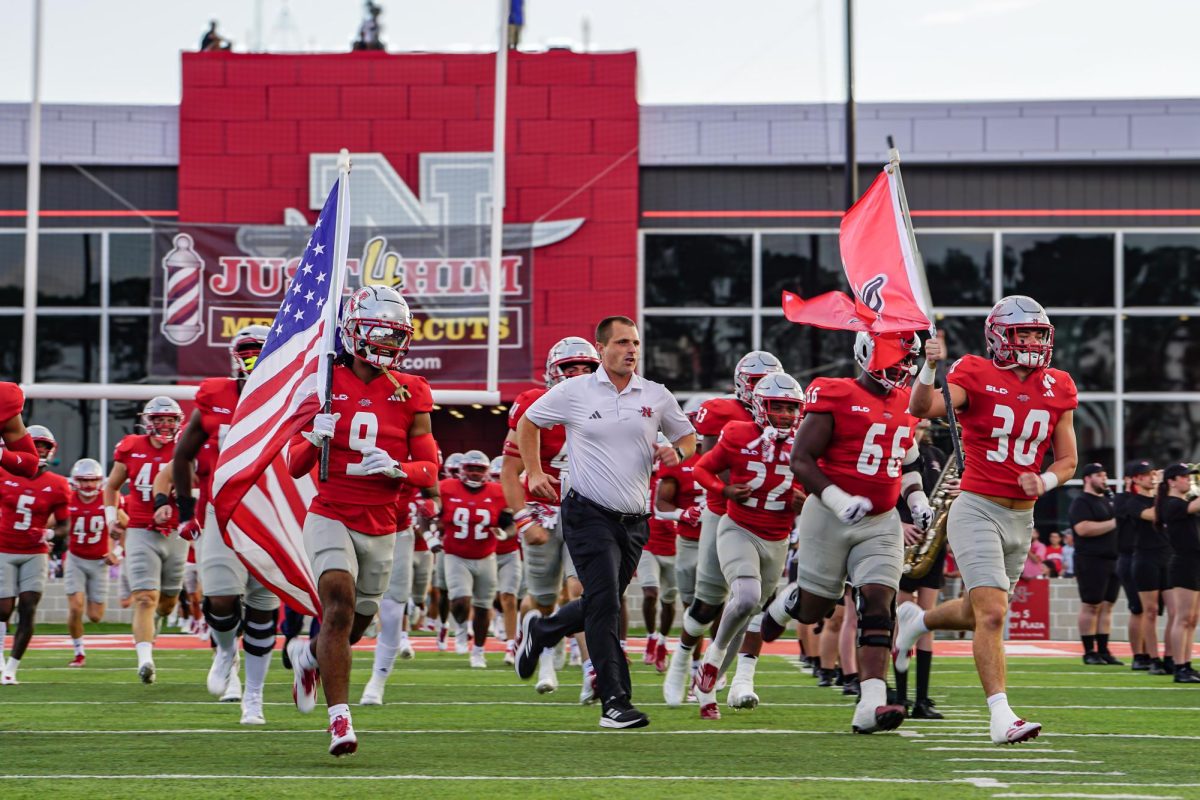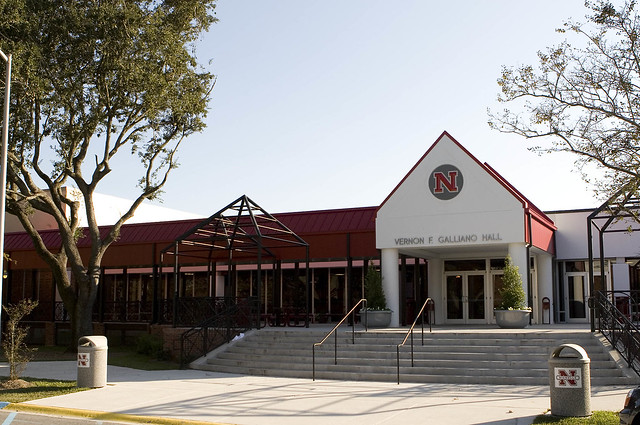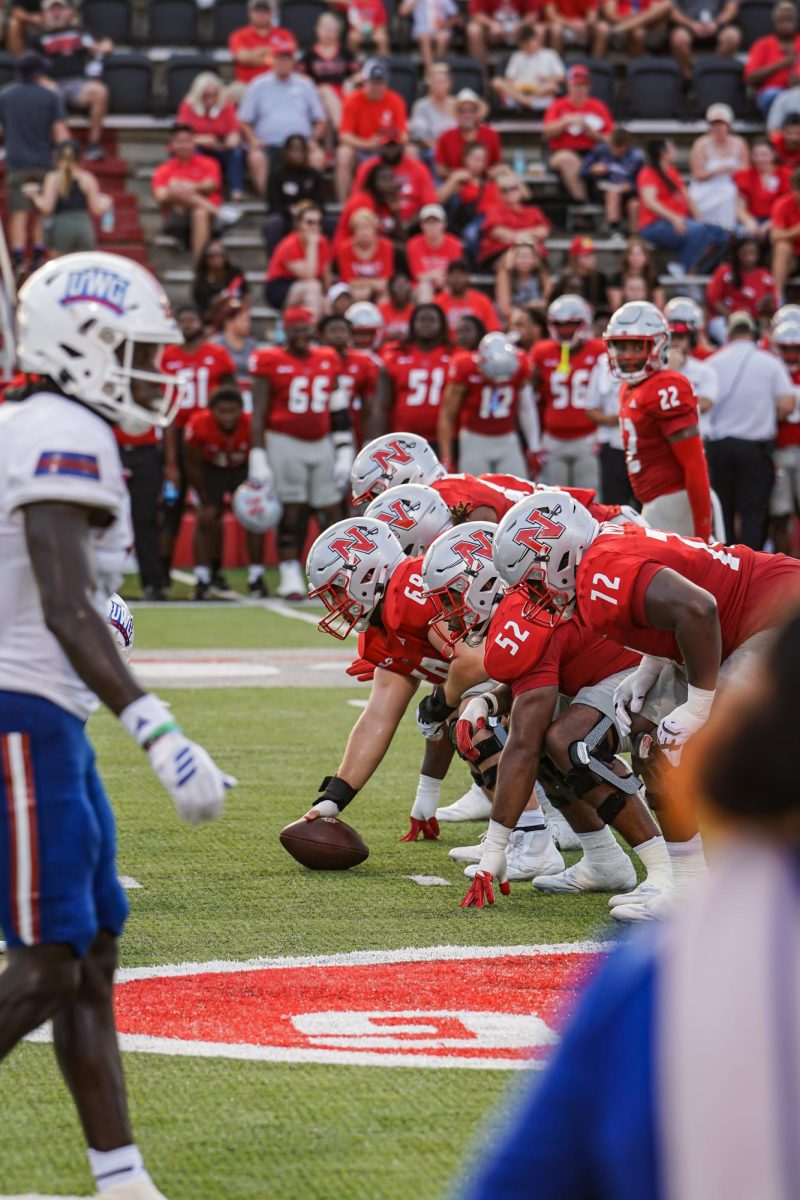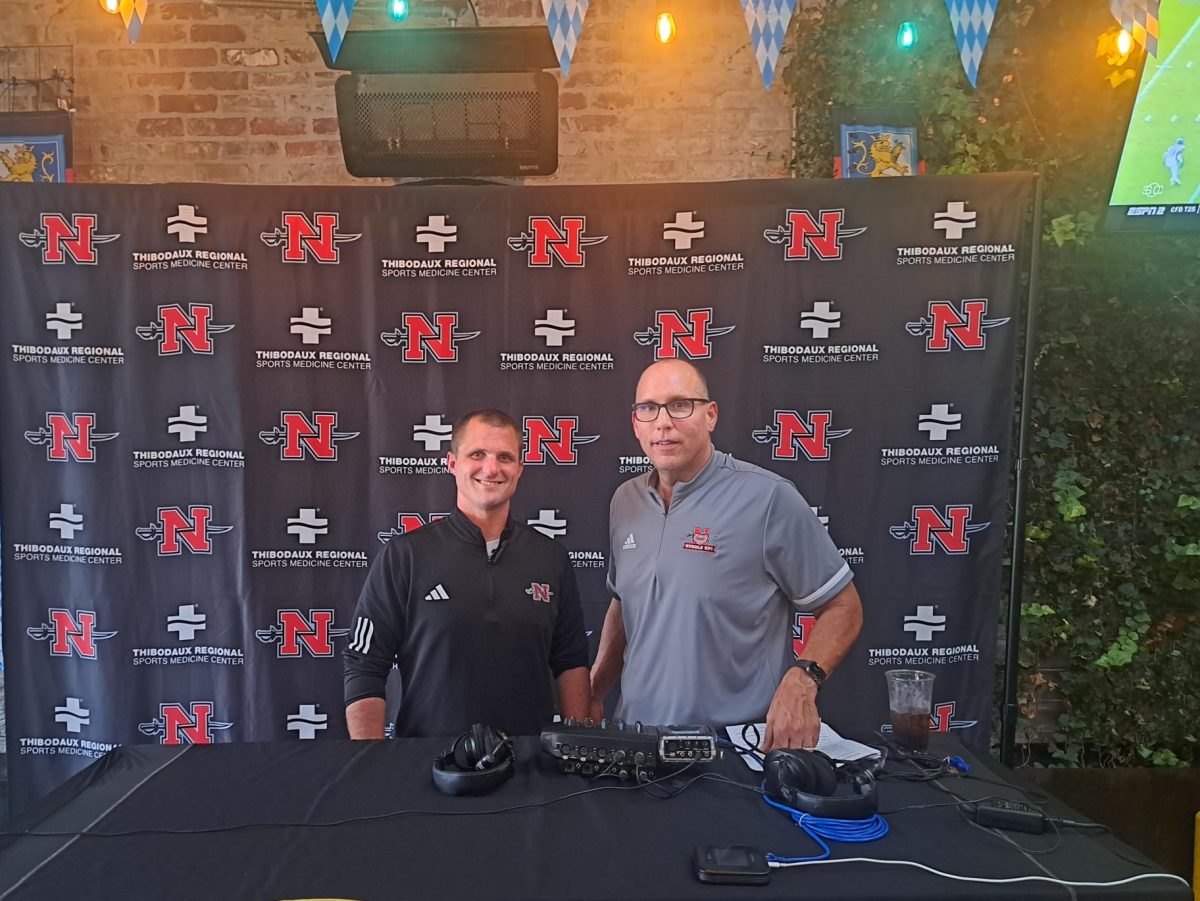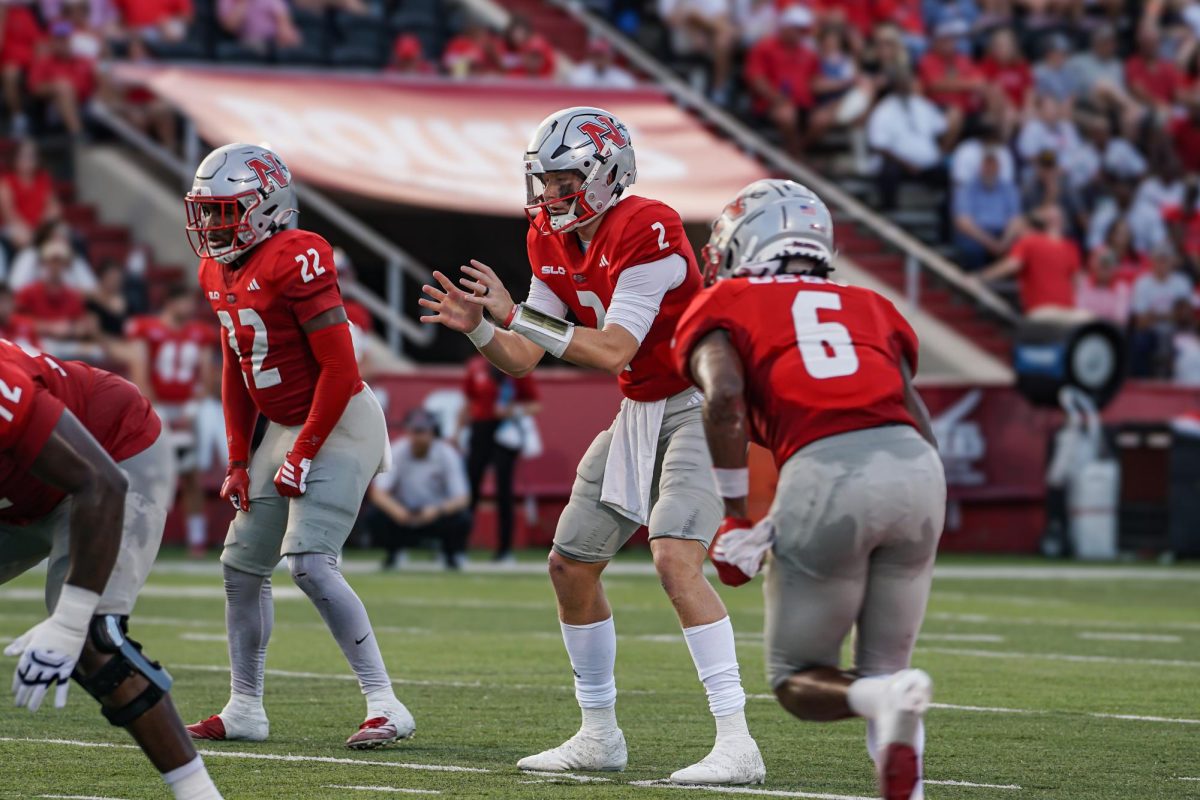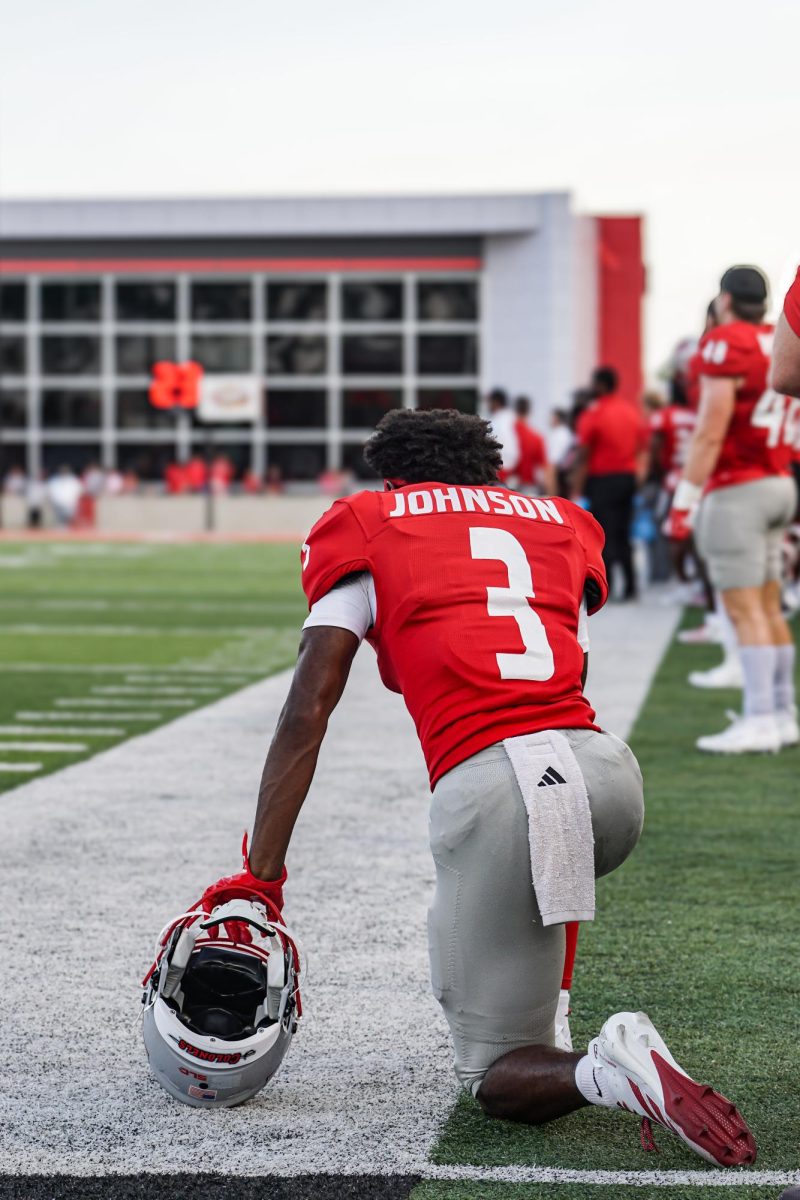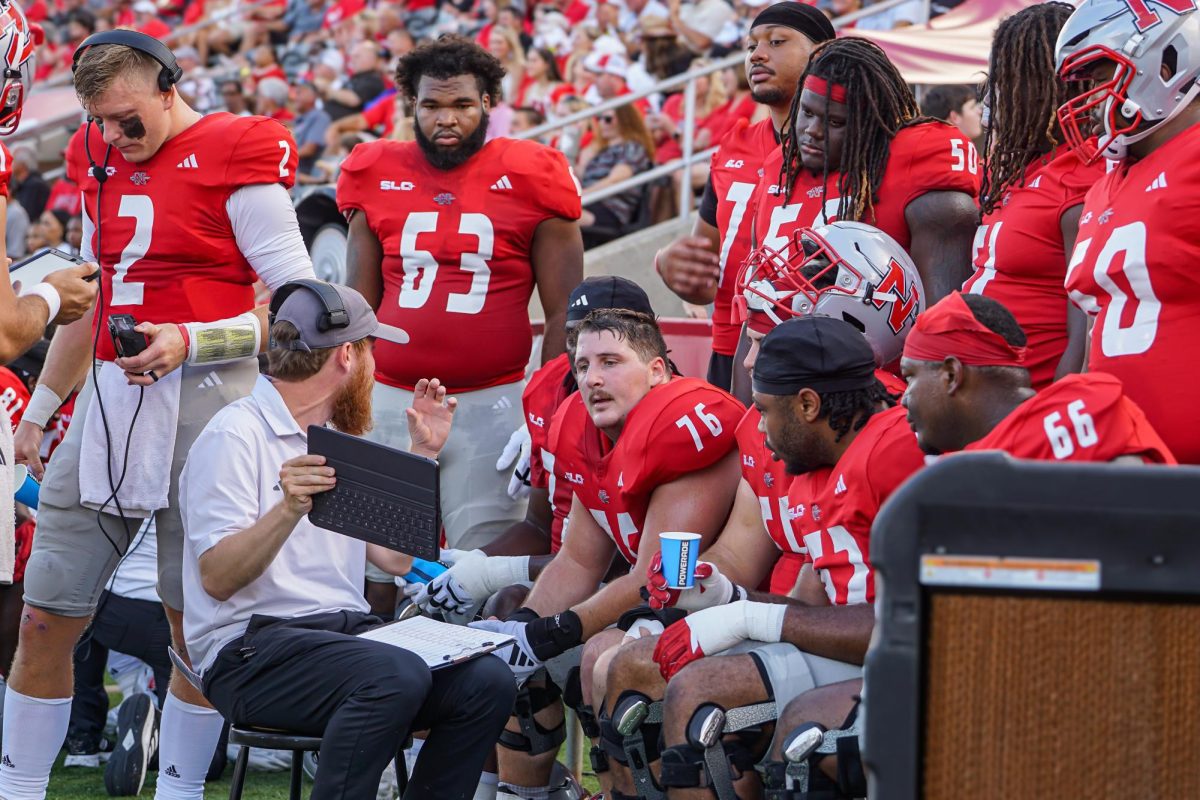Despite belonging to a smaller university, Nicholls athletics manages to find many international student athletes who come here seeking bigger opportunities.
Nicholls is home to 170 international students, 39 of which are currently on rosters. In addition, 11 more used to compete, but no longer compete because of eligibility, scholarships cut or just quit. Essentially, 30 percent of international students came to Nicholls due to athletics. These students range from 12 different countries.
Many of these students use sports as a gateway to create better opportunities for themselves in the United States. The pipeline for international students benefits both the students and the university.
Associate Athletic Director of External Affairs Brandon Ruttley believes that international students do more than add wins to the athletic programs.
“We not only bring diversity to athletics and university, but the city and state. I think it is important to recruit internationally because you may find a diamond in the rough that none of the schools like LSU are targeting,” he said.
Former Nicholls basketball star Anatoly Bose was one of those special finds. The 6-foot-6-inch Australian was able to take his basketball career further, winning Rookie of the Year for the Sydney Kings of the Australian National Basketball League. The 24 year old Bose now plays in Kazakhstan for BC Astana.
The Australian pipeline for men’s basketball continues to grow as the Colonels now have a roster with six Australians. In Australia, the economic and social set-up is similar to the United States, so there are not as many challenges to overcome.
Australian native and redshirt freshman business major Piers Carroll said, “The speed at which you guys talk was a tough adjustment.”
Carroll talked about how he used to get in trouble in high school in Baton Rouge because of the speed at which teachers talked.
He laughed and said, “I could not understand my teachers because of the speed they talked at. I didn’t know we had homework. My teachers would say in the mornings ‘Pull out your homework’, and I would be sitting there like a dumbass.”
Once he was able to adjust to the speed, it was smooth sailing. Carroll came to the United States for his senior year of high school and said that school here was easier than in Australia.
“Senior year is important in Australia because you have to do well your senior year to get into college, whereas here I felt like senior year was a vacation because everyone just wants to get to college, already knowing they will get in,” Carroll said.
Dietetics sophomore and former tennis player Natalia Cardiff came to the U.S. from Brazil, but no longer plays because her eligibility expired. Before she came to Nicholls, she studied English for six months in North Carolina so she could get a good score on the Scholastic Assessment Test. The small school atmosphere of Nicholls attracted Cardiff to the University because she could get the extra help without much issue.
One major difference between colleges in Brazil and the U.S. is that in Brazil, students’ classes are strictly focused on majors. They are not required to take any math or history. “I do not understand why you have to take all these same classes you take in high school, but I do like it because it did help improve my English,” Cardiff said.
She recently married Nicholls tight end Hayden Cardiff, which makes her situation different than many of the other international students because of immigration laws. When she was married, she was granted access to a green card. Other students may be here on a work visa. She is hoping to get an internship when she graduates and practice dietetics here in the United States.
The tennis team has one of the highest Academic Progress Rate (APR) scores on campu,s and they have almost all international students. An APR score essentially determines projected graduation dates and highlights how much the student athlete has learned.
Ruttley said, “They always have the best academics, and it is weird because there is a language barrier. But it is because they put forth the effort. They want to be here and most want to stay here.”
International student athletes bring diversity and success
Michael Hotard
•
October 3, 2013
0
More to Discover


